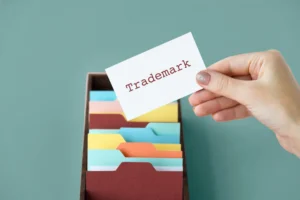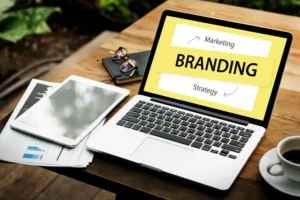BPOM License: The Gateway to Nationwide Market Access
In today’s competitive business environment, especially in industries like food, cosmetics, and pharmaceuticals, having the right credentials is essential to gaining consumer trust and ensuring the success of your products. In Indonesia, one of the most important certifications a business can obtain is the BPOM license, which is granted by the National Agency of Drug and Food Control (Badan Pengawas Obat dan Makanan or BPOM). This license is crucial for businesses wishing to market their products in the Indonesian market, and it serves as a gateway to access a nationwide consumer base.
What is the BPOM License?
The BPOM license is a regulatory authorization that signifies a product has met the required safety, quality, and efficacy standards set by the Indonesian government. The license applies to products such as pharmaceuticals, food and beverages, dietary supplements, cosmetics, and traditional medicines. By obtaining a BPOM license, businesses ensure that their products are in compliance with the safety standards required to be sold to consumers in Indonesia.
The BPOM is responsible for the evaluation and approval of new products, as well as monitoring and regulating products already on the market. It plays a critical role in ensuring that all products sold in Indonesia are safe for consumers, preventing the circulation of counterfeit, substandard, or harmful goods.
Why is the BPOM License Important?
- Legal Compliance The BPOM license is required for any product that is sold in Indonesia. Operating without BPOM approval can result in severe penalties, including product confiscation, fines, or even criminal charges for selling unsafe products. For businesses aiming for long-term sustainability in Indonesia, obtaining a BPOM license is a fundamental step to ensuring legal compliance.
- Consumer Confidence In a market where consumers are becoming increasingly aware of product quality and safety, a BPOM license provides assurance that the product has passed rigorous testing and meets the necessary health standards. It helps build consumer trust, which is crucial for gaining a loyal customer base. Brands with BPOM certification are viewed as reliable and credible, encouraging consumers to purchase with confidence.
- Market Access A BPOM license is an essential tool for businesses that wish to access the vast Indonesian market. Indonesia, with its population of over 270 million people, presents a huge opportunity for businesses in various sectors. Without a BPOM license, your products cannot be legally sold in the country, which significantly limits your market reach. By obtaining the license, businesses can expand their presence to a nationwide scale, unlocking opportunities across diverse regions.
- Competitive Advantage With more businesses entering the Indonesian market, having a BPOM license can set a company apart from its competitors. It demonstrates that the business prioritizes safety and quality, giving it a competitive edge in a crowded market. Additionally, the BPOM license can enhance a brand’s reputation, especially if it is from a trusted international manufacturer looking to enter the Indonesian market.
- Access to International Markets Obtaining a BPOM license is also an indicator that a company meets international health and safety standards. This can open doors for exporting products from Indonesia to other countries that require similar certifications. For instance, many ASEAN and global markets recognize BPOM certification, making it easier for businesses to export products once they are BPOM approved.
The BPOM License Application Process
The process of applying for a BPOM license in Indonesia involves several steps, which may vary slightly depending on the type of product being registered. Here is a general overview of the process:
- Preparation of Documents The first step in applying for a BPOM license is ensuring that all the required documents are prepared. These documents include product formulas, labels, manufacturing information, and certificates of analysis that detail the product’s safety and quality. Companies must also submit proof of the manufacturing process, which should meet BPOM standards.
- Submission of Application Once the necessary documents are gathered, the business must submit the application to BPOM either online or at the BPOM office. This includes providing detailed information about the product, such as its ingredients, manufacturing process, packaging, and intended use. BPOM will conduct an initial review of the submission.
- Product Testing and Evaluation For products like cosmetics, food supplements, and pharmaceuticals, BPOM requires testing to ensure that they are safe for consumer use. This may include laboratory testing of the product’s ingredients and final product. The BPOM will assess whether the product meets safety, quality, and efficacy standards.
- Approval and Issuance of BPOM Number After the evaluation and testing, BPOM will either approve or reject the product. If approved, BPOM will issue a unique registration number for the product. This BPOM registration number must be displayed on the product packaging to show that the product has been cleared for sale in Indonesia.
- Ongoing Monitoring After obtaining the BPOM license, businesses are subject to continuous monitoring. BPOM conducts inspections to ensure that products remain in compliance with the established standards. Additionally, companies are required to report any issues related to the product, such as safety concerns, to BPOM.
Costs and Timeline
The costs and timeline for obtaining a BPOM license vary depending on the type of product and the complexity of the approval process. Generally, the application process takes several months, as BPOM conducts a thorough review and testing process. The costs associated with obtaining a BPOM license can include application fees, product testing fees, and costs for legal or consulting services if needed. However, these costs are an investment in ensuring that your product is legally compliant and safe for the Indonesian market.
The Risks of Not Having a BPOM License
Selling products without a BPOM license can lead to significant risks for businesses. Some of these risks include:
- Legal Action: Without a BPOM license, businesses may face legal penalties, including fines or the confiscation of products.
- Damage to Brand Reputation: Being caught selling unlicensed products can severely damage a company’s reputation and consumer trust.
- Limited Market Reach: Products without BPOM approval cannot be sold in most retail outlets or online marketplaces in Indonesia, limiting the company’s market access.
Conclusion
The BPOM license is more than just a regulatory requirement – it is a key factor in gaining access to the lucrative Indonesian market. It ensures that products meet high safety and quality standards, builds consumer trust, and opens doors to nationwide and international sales. For businesses looking to expand their presence in Indonesia, obtaining a BPOM license is a necessary step toward long-term success and growth.
If you’re looking to navigate the complexities of obtaining a BPOM license or need assistance with business legalities in Indonesia, Documenta.id is here to help. Our team of legal experts specializes in guiding startups and businesses through the regulatory processes, ensuring that you stay compliant and can focus on scaling your business. Reach out to Documenta.id today for professional legal advice and services that help you unlock opportunities in the Indonesian market!
Visit us at Documenta.id to learn more and get started!
Still confused about BPOM?
Click the tombol on the right to Ask the Documenta Team











